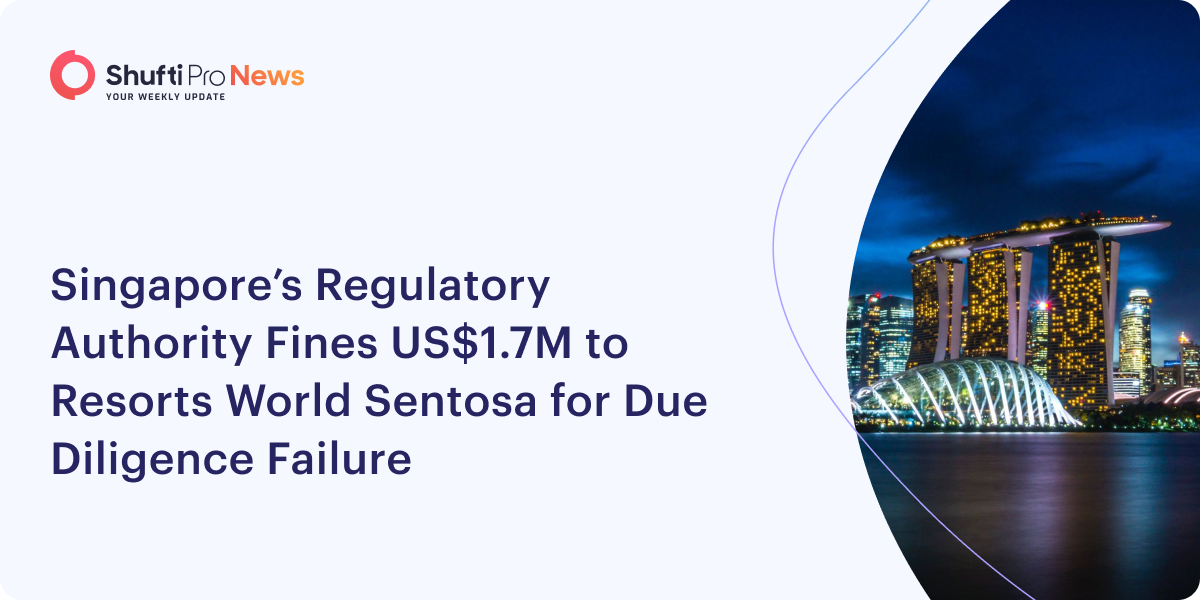Singapore’s Regulatory Authority Fines US$1.7M to Resorts World Sentosa for Due Diligence Failure

The gambling operator, Resorts World Sentosa (RWS), was fined by Singapore’s Gambling Regulatory Authority (GRA) for not following AML measures and failure to conduct customer due diligence.
The GRA imposed a US$1.67M fine on RWS for failure to comply with customer due diligence measures required in the AML regulations. The regulatory authority investigation revealed the casino’s operating company, RWS, deposited suspicious transactions without conducting customer due diligence on the entities. Non-compliance with the due diligence requirements breaks the Casino Control Act 2006 and the Casino Control (Prevention of Money Laundering and Terrorism Financing) Regulations 2009. The agency stated they would continue the investigation to track the source of these transactions. It also helps them to overview the deficiency in risk assessment and casino’s anti-money laundering derivatives.
According to GRA, the operator’s employees have been accused of collecting the previously mentioned amount to deposit it into the corresponding RWS client accounts, but they neglected to document the identities of these third-party creditors as mandated by the Regulations against Money Laundering and Terrorism Financing. The GRA stated, “when accepting these cash deposits, RWS had failed to establish the identity of the third-party depositors. RWS did not record the requisite identifying information, nor did it verify these identities using reliable and independent sources as required under the PMLTF Regulations.”
The GRA also terminated the RWS and their special employee licence because of falling in AML/CFT regulations. The operator’s spokesperson claimed no evidence of financial mishaps was linked with any criminal activity. The RWS explained, “ they have since taken remedial actions, which included implementing technology enhancements to processes and intensifying employee training.” A statement from the casino operator revealed that they were a “systematic failure” in their financial reporting system. According to Singapore’s regulatory measures, if customers deposit over S$5,000, they must verify their identity and bookkeeping information. Those records included the customer profile, financial statements, identity verification, and the tool by which the customer made the deposit.
Suggested Reads:
SINGAPOREAN BANKS ENHANCE SECURITY TO COMBAT FINANCIAL CRIME
SINGAPORE CENTRAL BANK TO UTILISE AI TECHNOLOGY TO COMBAT MONEY LAUNDERING
SINGAPORE AUTHORITIES INVESTIGATES BANK’S ROLE IN $1.8B MONEY LAUNDERING CASE

 Explore Now
Explore Now













